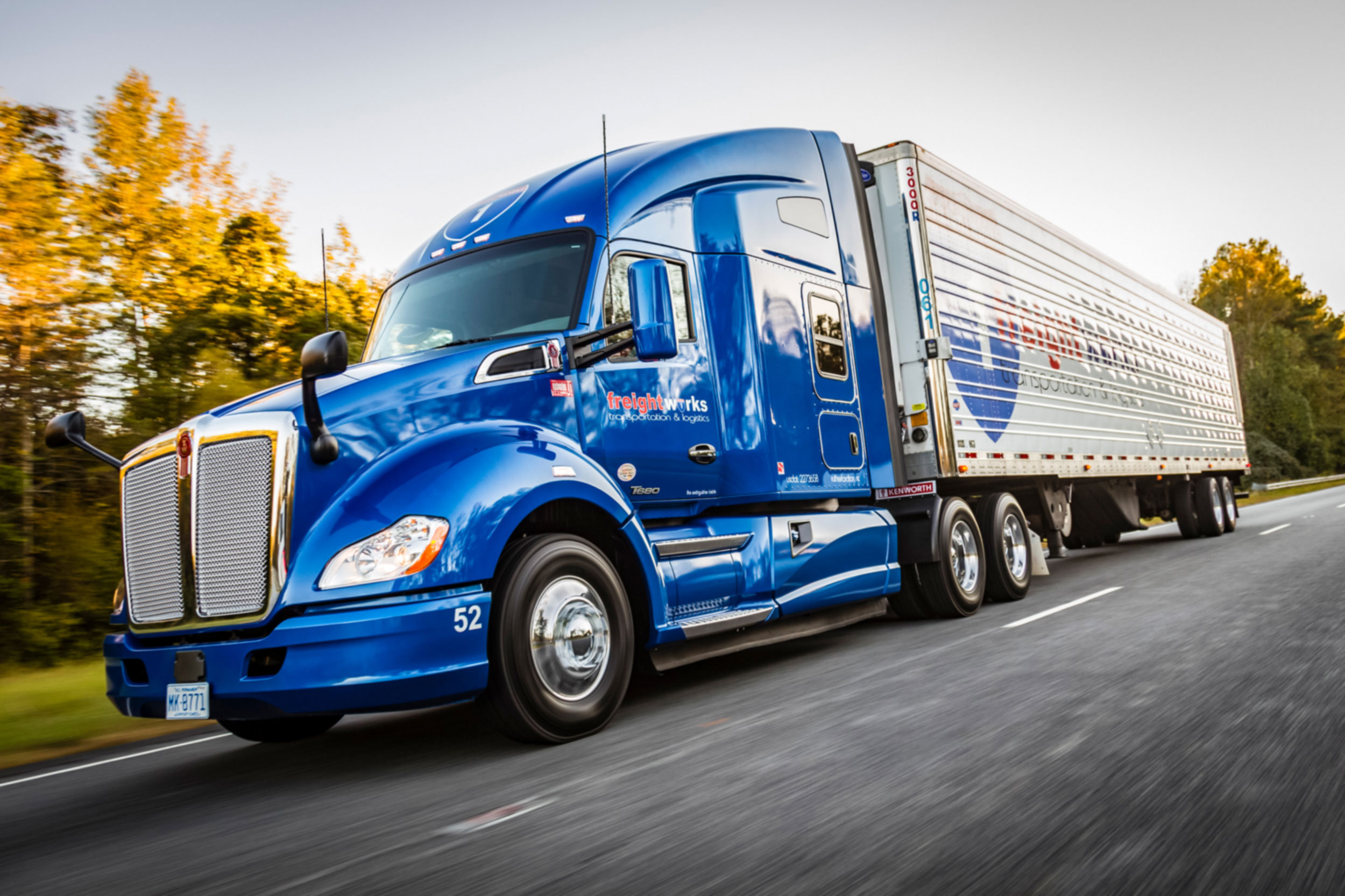
FreightWorks ceases operations, a North Carolina-based truckload carrier, as it faced an abrupt loss of a majority of its business in March.
FreightWorks ceases operations, a North Carolina-based truckload carrier, recently ceased operations following a sudden loss of a majority of its business in March. This closure resulted in 200 job losses and underlines the need for the trucking industry to address ongoing challenges, such as driver shortages and rising operational expenses. In this article, we explore the reasons behind FreightWorks’ closure, its impact on the trucking industry, and how companies can adapt to changes in the industry to ensure continued growth and success.
FreightWorks Ceases Operations: The Story So Far
FreightWorks, known for its refrigerated trucking operations, was forced to shut down after a significant loss of business. Butch Maltby, the communications director for FreightWorks, said the company had no choice but to cease operations and focus on helping its employees find new jobs in the industry. Despite the unfortunate closure, neighboring trucking companies have shown interest in hiring the displaced drivers, offering hope for new employment opportunities.
Supporting Employees as FreightWorks Ceases Operations

Maltby emphasized that the company spent the past few days assisting employees in their job search, ensuring they were not left without support during this difficult time.
Maltby emphasized that the company spent the past few days assisting employees in their job search, ensuring they were not left without support during this difficult time. FreightWorks’ available drivers have already garnered interest from neighboring trucking companies, offering hope for new employment opportunities.
Enjoying our insights?
Subscribe to our newsletter to keep up with the latest industry trends and developments.
Stay Informed“We’ve been getting calls, and it’s really important for people to know we’re just not throwing people to the wind,” Maltby said. “We’re trying to help people identify the right places to go.”
Winding Down Operations and Returning Equipment
Though FreightWorks is no longer transporting goods, the company will likely remain open for a while longer to wind down operations. The company recently took delivery of several new Peterbilt trucks, which must be returned as part of the closure process.
FreightWorks’ History and Expansion Plans
FreightWorks was launched in April 2012 with the purchase of its first truck and experienced rapid growth over the next decade. As of 2021, the company had announced plans to build a new terminal and headquarters in Rutherfordton, North Carolina. Unfortunately, these expansion plans were derailed by the sudden loss of business that ultimately led to the company’s closure.
Impact on the Trucking Industry

With the loss of 200 jobs and a valuable truckload carrier service, the industry must adapt and find ways to fill the gap left by FreightWorks’ departure.
The closure of FreightWorks is a significant blow to the trucking industry, particularly in North Carolina. With the loss of 200 jobs and a valuable truckload carrier service, the industry must adapt and find ways to fill the gap left by FreightWorks’ departure. The closure of FreightWorks highlights the need for the industry to address these issues to ensure its continued growth and success.
Looking Forward: Opportunities and Challenges

While the loss of FreightWorks is undoubtedly difficult for its employees and the trucking industry as a whole, it also presents new opportunities for growth and innovation.
While the loss of FreightWorks is undoubtedly difficult for its employees and the trucking industry as a whole, it also presents new opportunities for growth and innovation. Neighboring trucking companies have the chance to expand their operations and fill the void left by FreightWorks, while former employees can contribute their skills and experience to new organizations. As the industry navigates these challenges, it must also look for ways to improve efficiency, reduce operational costs, and address the ongoing driver shortage to ensure a bright and prosperous future.
Key Challenges and Opportunities in the Trucking Industry
The FreightWorks closure highlights the need for the trucking industry to address pressing challenges, such as driver shortages and rising operational expenses. Embracing new technologies, attracting and retaining skilled drivers, and strengthening industry partnerships are crucial steps for the industry to adapt and thrive in the face of adversity.
1. Leveraging Technology to Boost Efficiency and Reduce Costs
To stay competitive in the modern trucking industry, companies must embrace new technologies and innovations that can enhance efficiency and reduce costs. Implementing advanced logistics software, utilizing telematics for better fleet management, and exploring the potential of electric and autonomous trucks are just a few examples of how the industry can leverage technology to address current and future challenges.
2. Tackling the Driver Shortage Crisis
One of the most significant issues facing the trucking industry is the ongoing driver shortage. Companies must find new ways to attract and retain skilled drivers to maintain their operations and meet increasing demands. Offering competitive salaries, benefits, and incentives, as well as investing in driver training programs, can help address this issue and ensure a steady flow of qualified drivers for the industry.
3. Strengthening Industry Collaboration and Partnerships
Developing strong partnerships within the industry and with external stakeholders can also help companies navigate challenges and capitalize on new opportunities. By collaborating with other trucking companies, suppliers, and customers, businesses can share resources, knowledge, and best practices, leading to improved efficiency and growth.
Lessons from FreightWorks: Building Resilience in the Trucking Industry
While the closure of FreightWorks is a significant loss for the trucking industry, it also serves as a valuable learning opportunity for other companies. By understanding the factors that led to the company’s downfall and implementing strategic measures to address potential challenges, businesses can better position themselves for long-term success.
Conclusion: The Road Ahead for the Trucking Industry
The trucking industry is a dynamic and ever-changing landscape that requires companies to adapt and innovate continually. As the industry moves forward from the loss of FreightWorks, it must focus on addressing challenges such as driver shortages, embracing new technologies, and strengthening industry partnerships. By doing so, the trucking industry can continue to thrive and support the global supply chain for years to come.
Related Articles:
Top 5 Strategies for Enhancing Trailer Efficiency and Boosting Profits
News on Closures in the Trucking Industry
Additional Resources:
Official Site for FreightWorks: https://www.freightworkstransport.com/


















